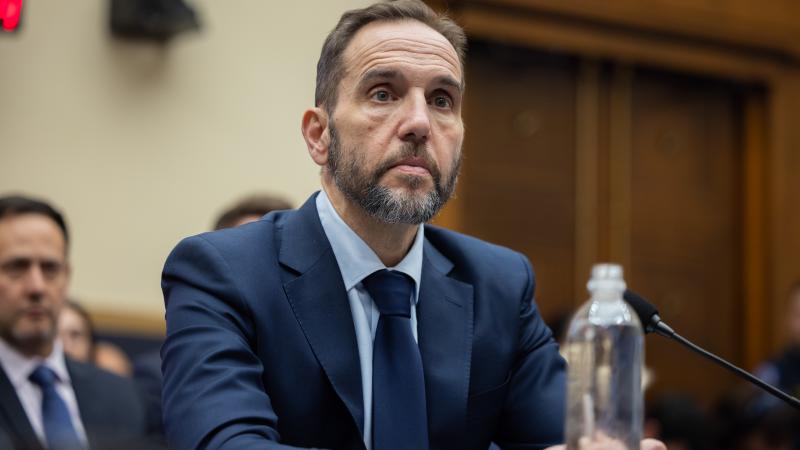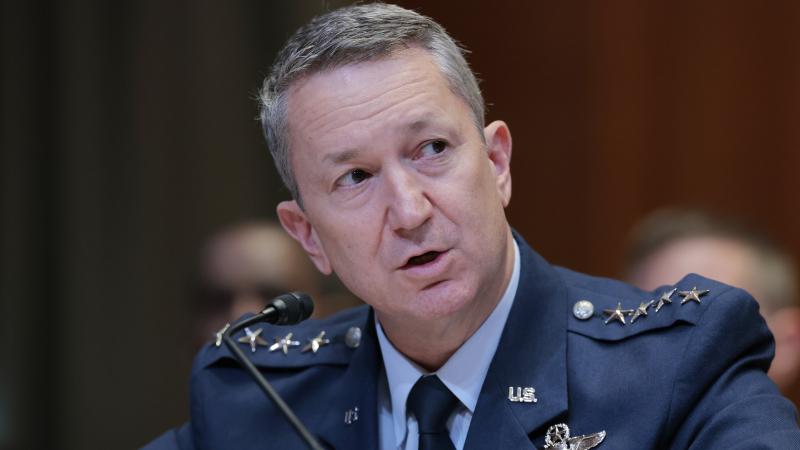‘Rule for the Ages:’ Trump finds sympathy among justices for some immunity, path for legal delay
Conservative justices express unease over letting future presidents prosecute their ex-rivals. Liberal justices contend that without immunity, future Presidents might be more inclined to obey the law.
The Supreme Court’s conservative majority signaled its discomfort with unleashing an American future where ex-presidents could be prosecuted by rivals with ease, setting in motion a possible prolonged legal battle to establish some form of limited immunity for former chief executives that could delay Donald Trump’s Jan. 6 trial until after the 2024 election.
Legal experts from the left and right agreed the justices were unlikely to accept Trump’s claim of absolute immunity for all acts as president but that there might be a majority inclined to define a more limited immunity that would prevent a cycle of retributive lawfare where ex-presidents are prosecuted by rivals after leaving office with little deterrence.
"Trump had much more success than many Court watchers expected,” said University of California-Berkeley law professor John Yoo, a former Supreme Court law clerk, Justice Department official and Senate committee counsel.
“Only the three liberal justices seemed to reject the idea of immunity outright,” he added. “The six conservative justices recognized the need to prevent future Presidents from criminalizing policy and constitutional differences with their predecessors."
Yoo and other legal experts said one possible outcome is for the justices to not define the limits of immunity at the outset, but instead send the issue back to federal courts to determine which actions Trump took were official as opposed to private acts. Such a decision would delay Trump’s federal trials until well after the November elections.
“They may punt the question back to the lower courts by asking them to first determine whether Trump’s actions on January 6 amounted to officials versus private acts, before they decide whether immunity might extend to official acts," Yoo said.
Former federal prosecutor Randall Eliason, now a George Washington University law professor, said the chances of Trump’s trial on Jan. 6 being completed before the November election were dwindling.
“If they wait until the last day of the term, the window of getting tried before the election is practically closed, or close to it,” he told The Washington Post. “You may start before the election, but you may not finish it.”
Chief Justice John Roberts made the clearest declaration during Thursday's arguments that the court is likely to send matters back to the lower court, excoriating the D.C. Circuit Court of Appeals for circular reasoning in declaring Trump did not have immunity for his actions on Jan. 6
“As I read, it says simply: A former president can be prosecuted because he’s being prosecuted,” Roberts said of the appeal court rationale. “Now, you know how easy it is in many cases for a prosecutor to get a grand jury to bring an indictment. And reliance on the good faith of the prosecutor may not be enough in the some cases,” he added. “Why shouldn’t we either send it back to the Court of Appeals or issue an opinion making clear that that’s not the law?”
Whatever the outcome, Thursday's debate in the high court made clear the justices see this case as impacting far more than Trump’s future.
“I’m not concerned about this case,” Justice Neil Gorsuch said at one point. “But I am concerned about future uses of the criminal law to target political opponents based on accusations about their motives.”
“We’re writing a rule for the ages,” he added.
Liberal Justice Ketanji Brown Jackson likewise talked about the historical impact the ruling will have but from a different perspective. "If the potential for criminal liability is taken off the table, wouldn't there be a significant risk that future presidents would be emboldened to commit crimes with abandon while they're in office?" she asked during an exchange with Trump’s lawyers.
“Once we say, ‘No criminal liability, Mr. President, you can do whatever you want,’ I'm worried that we would have a worse problem than the problem of the president feeling constrained to follow the law while he's in office," Jackson said.
Conservative Justice Samuel Alito turned the Jan. 6 case around on the government’s lawyers, suggesting denying Trump immunity for his actions that day might make future presidents unwilling to leave office if they lost for fear of being prosecuted by a rival to end their political careers.
“I’m sure you would agree with me that a stable democratic society requires that a candidate who loses an election, even a close one, even a hotly contested one, leave office peacefully, if that candidate is the incumbent?” Alito asked.
“If an incumbent who loses a very close, hotly contested election knows that a real possibility after leaving office is not that the president is going to be able to go off into a peaceful retirement, but that the president may be criminally prosecuted by a bitter political opponent, will that not lead us into a cycle that destabilizes the functioning of our country as a democracy?” he continued.
For his part, Trump seemed pleased with the direction of the court’s questions.
"The U.S. Supreme Court had a monumental hearing on immunity and the immunity having to do with presidential immunity," Trump said during a break at his New York criminal trial. "And I think it was made clear, I hope it is very clear that a president has to have immunity."















